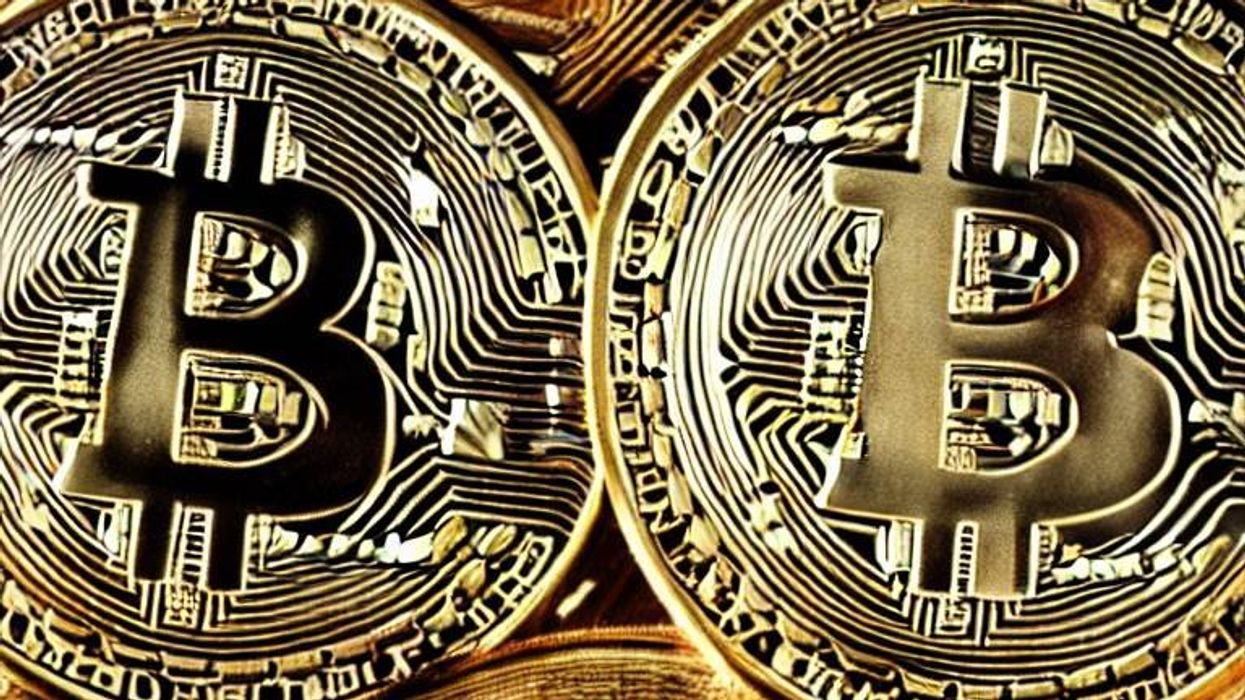How Crypto-Backed Ponzi Schemes Endanger Our Banking System
The collapse of Silicon Valley Bank (SVB) last week raises serious issues far more significant than the obvious ones cited by the financial press and a broad range of Washington politicians.
Chief among these are bank loans against dubious assets. That’s not getting much if any attention in the news or from Washington and is likely to soon be swept under the rug, allowing needlessly risky banking practices to continue.
Before its collapse last week, SVB made loans against Bitcoin and other cryptocurrencies.
The question: why is any bank anywhere allowed to accept crypto as collateral for loans?
Why do banking regulators allow our federally insured and regulated banks make loans using magic internet money as collateral? That’s a crazy policy, no different than allowing banks to accept buckets of ice cubes in winter as collateral, even though they melt come spring and evaporate in summer.
Bitcoin and its imitators are not money. They are not currency. They’re hardly used to buy and sell, an unsurprising fact given that by design the Bitcoin system can process only seven transactions per second compared to many thousands of transactions per second for credit cards.
Indeed, except for laundering proceeds from drug trafficking as well as hiding assets from creditors, estranged spouses, and the tax police, cryptocurrencies have no use.
High-tech Ponzi Scheme
Cryptocurrencies and their cousins, Non-Fungible Tokens or NFTs—are just a high-tech Ponzi scheme. Instead of Charlie Ponzi or Bernie Madoff personally running the con, the crypto scam relies on decentralized computer blockchain and “mining” of mathematical solutions.
Bitcoin’s supposed inventor, who went by the pseudonym Satoshi Nakamoto, has never been identified. He or she has since vanished, leaving holders with a digital string worth only as much as the next fool, or crook, will pay for this imaginary asset.
Early participants in Ponzi schemes profit mightily if they cash out while the gullible souls who get sucked in later wipe out. That is what happened to SVB, America’s 16th largest bank, which was big on crypto loans.
Many Bitcoin “investors” have already been wiped out as the “market cap” of Bitcoin plummeted from nearly $1.3 trillion in 2021 to about $389 billion on Friday, down almost 70 percent.
Why do banking regulators allow our federally insured and regulated banks to make loans using magic internet money as collateral? That’s a crazy policy, no different than allowing banks to accept buckets of ice cubes in winter as collateral, even though they melt come spring and evaporate in summer
Silicon Valley Bank is just one of many federally insured financial institutions that accept crypto currency as collateral for loans. Some banks will loan you 90 percent of the seeming value of your crypto, though 50 percent loan-to-value is more common and that appears to be the standard at SVB based on its web pages.
Zero Interest Crypto Loans
All sorts of financial news outlets offer advice on borrowing against crypto. These include NerdWallet, and the increasingly naïve and unreliable Forbes. People with crypto can even borrow at zero interest. Gadzooks!
For a sober look at the big risks of crypto loans read Investopedia’s essay.
In the wake of the second largest bank failure in history, you should be deeply concerned that for more than four decades we have failed miserably at regulating banks. That history contrasts with the period from 1935 until voters abandoned the moderating and successful New Deal banking rules in favor of Reaganomics.
We took a wrong turn when the prudent New Deal banking regulations in effect from 1935 were killed by Reaganomics, which re-regulated banks to reduce regulations and increase the risk of financial institutions failing. (There is no such thing as deregulation, only new regulation, which in our time on terms typically means regulations favoring corporations, including banks, over customers, financial prudence, and public safety.)
Congress’s Role Is Critical
What we need now are Congressional hearings to examine the reasons that cryptocurrencies can be collateral for bank loans.
Even if you don’t own Bitcoin or its growing list of alternatives, this story matters to you for multiple reasons.
Your money is only insured up to $250,000. Any money above that isn’t insured. That means if you’re a trustee of a nonprofit, for example, and it’s got $1 million in the bank, you or the organization you help lead is at risk of being wiped out in a bank failure.
The federal government is covering all deposits for SVB and at Signature Bank in New York, which failed Sunday. But that doesn’t mean it always will. During an earlier banking crisis nonprofits with more than the guarantee then in effect of $100,000 lost their deposits above that sum, which got very little news coverage at the time.
If people want to buy crypto, they should be free to do so. But they should not be allowed to put our bank deposits and investments at risk by using these digital tokens as collateral for loans. After all, it’s your, and my bank deposits, along with those of businesses, nonprofits, and our governments that the banks use to make loans, so it’s not like we don’t have a deep interest in blocking crypto of any kind as collateral for loans.
Reprinted with permission from DC Report.

